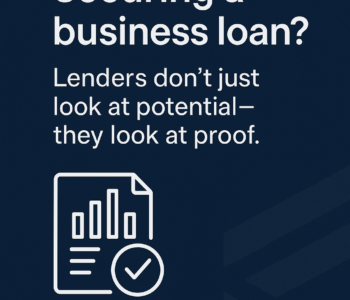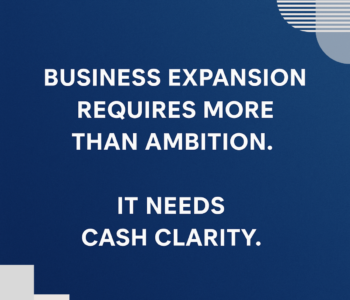
Ensuring Data Security When Outsourcing Your Accounting: A Few…
Outsourcing accounting functions has become a popular strategy for small and medium-sized enterprises (SMEs) looking to reduce costs, enhance efficiency, and focus on core business activities. While the benefits are numerous, concerns about data security often arise when entrusting sensitive financial information to an external provider. Ensuring data security is paramount to protect your business and maintain client trust. Here are some best practices to consider when outsourcing your accounting needs.
1. Choosing a Provider with Strong Data Security Protocols
The first step in securing your financial data is selecting an accounting service provider with robust security measures. Here’s what to look for:
- Certification and Compliance: Ensure the provider complies with relevant data protection regulations such as GDPR, CCPA, or other local laws. Certifications like ISO/IEC 27001 indicate a commitment to maintaining high security standards.
- Security Policies: Review their security policies, including how they handle data breaches, data access, and data storage. A reputable provider should have clear, well-documented procedures.
- Employee Training: Verify that the provider conducts regular security training for their staff to keep them updated on the latest threats and security practices.
Selecting a provider with these qualifications not only safeguards your data but also demonstrates their professionalism and reliability.
2. Utilizing Encrypted Communication Methods
Communication between your business and the outsourcing provider is a critical point of vulnerability. To protect sensitive financial data during transmission, it is essential to use encrypted communication methods:
- Secure Email Services: Use encrypted email services for exchanging sensitive information. Services like ProtonMail offer end-to-end encryption, ensuring that only the intended recipient can read the content.
- File Sharing Platforms: Utilize secure file-sharing platforms that offer encryption, such as Dropbox Business or Google Workspace. These platforms provide additional security features like access controls and audit logs.
- Virtual Private Networks (VPNs): Implement VPNs for secure remote access. VPNs encrypt the data transmitted over the internet, protecting it from eavesdropping.
By employing these encrypted communication methods, you significantly reduce the risk of data breaches during transmission.
3. Regularly Updating and Patching Software
Outdated software can be a major security risk, as it may contain vulnerabilities that cybercriminals can exploit. To mitigate this risk, ensure all software used in your accounting processes is regularly updated and patched:
- Automatic Updates: Enable automatic updates for all software whenever possible. This ensures that you receive the latest security patches as soon as they are released.
- Patch Management: Implement a robust patch management policy to regularly check for and apply updates. This includes accounting software, operating systems, and any third-party applications.
- Vendor Support: Choose software from reputable vendors that offer regular updates and support. This not only keeps your software secure but also ensures compatibility with other tools and systems.
Keeping your software up-to-date is a simple yet effective way to protect your data from known vulnerabilities.
4. Conducting Periodic Security Audits
Regular security audits are essential to identify and address potential vulnerabilities in your data security framework. These audits should be conducted both internally and by external experts:
- Internal Audits: Schedule regular internal audits to review security policies, access controls, and compliance with data protection regulations. Use audit logs to track and analyze access to sensitive information.
- External Audits: Hire third-party security experts to conduct comprehensive security assessments. These experts can provide an unbiased evaluation of your security measures and recommend improvements.
- Continuous Monitoring: Implement continuous monitoring tools to detect and respond to security incidents in real time. This proactive approach helps to identify and mitigate threats before they can cause significant damage.
Conducting periodic security audits ensures that your data security measures remain effective and up-to-date.
5. Implementing Multi-Factor Authentication
Multi-factor authentication (MFA) adds an extra layer of security by requiring users to provide two or more verification factors to access sensitive information. This significantly reduces the risk of unauthorized access:
- Authentication Methods: Implement a combination of authentication methods such as passwords, biometric verification (fingerprint or facial recognition), and hardware tokens (such as YubiKey).
- Access Control: Use MFA to protect access to all critical systems and data, including accounting software, email accounts, and file-sharing platforms.
- User Training: Educate users on the importance of MFA and how to use it effectively. Encourage them to create strong, unique passwords and avoid common pitfalls such as reusing passwords across multiple accounts.
MFA provides an additional layer of defense against cyberattacks, making it much harder for unauthorized users to gain access to your sensitive data.
Why companies should outsource Accounting
Despite the security concerns, outsourcing accounting functions can be a strategic move for SMEs. Here’s why:
- Cost Efficiency: Outsourcing eliminates the need to hire and train full-time accountants, reducing overhead costs. You pay only for the services you need, when you need them.
- Access to Expertise: Outsourced accounting firms employ experienced professionals who stay updated with the latest accounting standards and regulations. This expertise can enhance the accuracy and reliability of your financial reporting.
- Scalability: As your business grows, outsourced accounting services can easily scale to meet your increasing needs without the hassle of hiring additional staff.
- Focus on Core Activities: By outsourcing accounting tasks, you can free up valuable time and resources to focus on your core business activities, driving growth and innovation.
How Technology Helps in Outsourcing Accounting
Technology plays a crucial role in making outsourced accounting both efficient and secure:
- Cloud Accounting Software: Cloud-based accounting software like QuickBooks Online, Xero, and FreshBooks allows real-time access to financial data from anywhere. These platforms offer built-in security features such as encryption and regular backups.
- Automation Tools: Automation tools can handle repetitive tasks such as data entry, invoicing, and reconciliation. This not only increases efficiency but also reduces the risk of human error.
- AI and Machine Learning: AI-powered tools can analyze financial data to detect anomalies, predict trends, and provide insights. This enhances decision-making and helps to identify potential security threats.
- Collaboration Platforms: Tools like Slack and Microsoft Teams facilitate secure communication and collaboration between your team and the outsourced provider. These platforms offer integrated security features to protect your data.
In conclusion, outsourcing your accounting functions can be a smart move for SMEs, offering cost savings, access to expertise, and the ability to focus on core business activities. By following best practices such as choosing a provider with strong data security protocols, utilizing encrypted communication methods, regularly updating software, conducting security audits, and implementing multi-factor authentication, you can ensure that your financial data remains secure. Embracing technology further enhances the efficiency and security of outsourced accounting, making it a viable option for businesses looking to streamline their operations.









